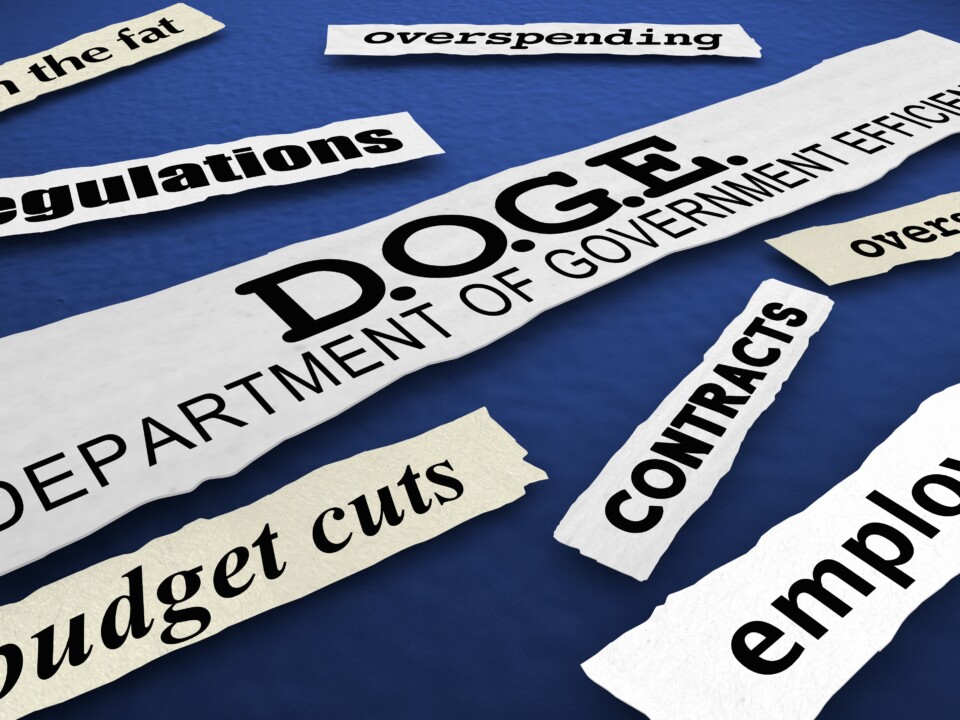
Five Things DOGE Could Learn from Internal Auditors
March 23, 2025I often find that the most spirited debates on LinkedIn take place on the weekends. Perhaps it’s because there are fewer posts and debate leads to more debate. The fact that I know about the weekend culture on LinkedIn reveals that I spend too much time on social media when I should be focused on healthier pursuits.
One debate that recently grabbed my attention was a post that read: “It is said that the true quality of an internal auditor is how much he is disliked by others.” Upon reading that post, I responded: “Sorry but that is too dark. I believe ‘the true quality of an internal auditor is how much he/she is respected by others.’ Sometimes they may dislike what we say, but they should respect us for saying it.” The operative word in my response is “should.” Sadly, people don’t often do the things they should. Therein lies the real dilemma for internal auditors: “Do we want to be right, or do we want to be liked?” Being liked makes us feel good, and the vast majority of our work should generate good will in our organizations, and contribute to our likeability. But we must also be courageous enough to risk stepping on someone’s toes when it’s necessary.
By its very nature, internal auditing is not a popularity contest. If you’re seeking constant approval and unshakable camaraderie in your workplace, internal auditing may not be your calling. This isn’t to say that internal auditors can’t be well-liked, respected, or even admired. Most of us are. But every internal auditor will, if they are in the profession long enough, come to a crossroads where doing the right thing—ethically, professionally, and objectively—puts them at odds with powerful individuals or comfortable norms.
And when that moment comes, you have to choose.
The Call to Integrity
At the heart of internal auditing lies a powerful mandate: to provide independent, objective assurance and insight. We are stewards of accountability, defenders of transparency, and guardians of ethical conduct. The cornerstone of this profession is integrity—a word often invoked, but sometimes inconvenient to uphold.
Doing the right thing may mean uncovering a senior executive’s conflict of interest. It may involve raising concerns about weak controls that others dismiss as “just how things are done.” It might even mean taking a stand when you know it will cost you political capital, professional relationships, or your seat at certain tables.
And yet, this is exactly what the job demands.
Being Liked Is Not the Ultimate Success Indicator
Let’s be honest: most people prefer to be liked. It feels good. And in the workplace, it often feels essential. We want to be seen as team players, trusted colleagues, and reliable partners. But there’s a difference between building professional rapport and compromising your objectivity to maintain harmony.
When internal auditors become too concerned with approval, their judgment can become clouded. They may soften findings, delay reporting, or avoid tough conversations. Over time, this erodes trust—not only in the audit function, but in the organization’s overall governance. The price of popularity, in this context, can be dangerously high.
Courage Over Comfort
Doing the right thing takes courage. That’s not a platitude—it’s a lived reality for many auditors who’ve had to deliver unwelcome news or challenge unethical behavior. Courage doesn’t mean being confrontational. It means standing firm when it would be easier to stay silent.
In some cases, it might mean speaking truth to power. In others, it might mean escalating issues outside the chain of command or even blowing the whistle. These are not easy decisions. They require strength of character, a clear understanding of the facts, and a deep commitment to the profession’s ethical standards.
But here’s the truth: internal auditors who consistently “go along to get along” rarely make a meaningful impact. Those who choose courage over comfort, on the other hand, often emerge as trusted voices—perhaps not immediately, but eventually.
The Long-Term Payoff
Yes, doing the right thing may cause friction in the short term. You may be labeled “difficult,” “too strict,” or “not a team player.” You may lose favor with certain leaders or even face professional setbacks. But in the long run, ethical consistency builds credibility.
Stakeholders remember the internal auditor who told the truth when it mattered. Boards and audit committees value professionals who don’t flinch in the face of controversy. And organizations thrive when their culture encourages principled dissent and rigorous oversight.
Reputations are not made by avoiding risk—they’re made by managing it with integrity.
Practical Ways to Stand Your Ground
If you’re navigating one of those moments where doing the right thing feels professionally perilous, consider these steps:
- Know the Standards: Lean on the Global Internal Audit Standards and your organization’s code of conduct. They provide a firm foundation for your actions.
- Document Everything: Clear, factual documentation can be your strongest ally if your judgment is ever questioned.
- Seek Support: Use your professional network. Consult with your CAE, legal counsel, or external peers. You are not alone.
- Communicate with Clarity: When delivering difficult messages, focus on the facts, the risks, and the potential impact to the organization—not personalities or politics.
- Maintain Respect: Being principled doesn’t mean being disrespectful. You can be firm without being adversarial, clear without being combative.
A Legacy Worth Leaving
Ultimately, internal auditing is a profession of trust. It demands independence, objectivity, and moral clarity. While it’s human to want to be liked, it’s professional to want to be respected. When we consistently do the right thing—even when it’s hard—we elevate not only our own credibility but the stature of our entire function.
In the words of author and leadership expert Brené Brown, “Integrity is choosing courage over comfort; choosing what is right over what is fun, fast, or easy; and choosing to practice our values rather than simply professing them.”
Internal auditors aren’t here to win popularity contests. We’re here to serve the truth. And in doing so, we build the kind of trust that no amount of likability can ever buy.
Internal auditors realize that being courageous isn’t free, but the rewards are priceless.






I welcome your comments via LinkedIn or Twitter (@rfchambers).